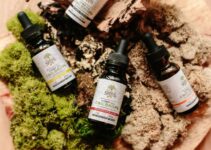I've found that OTC hemp oil can bring relief, but it can also come with some side effects. In this article, I'll share tips for managing common issues like digestive discomfort, dizziness, dry mouth, and potential allergic reactions. With a few simple strategies, you can navigate these side effects and continue to benefit from the natural relief that hemp oil provides.
Key Takeaways
- Adjusting dosage and timing of consumption can help manage digestive discomfort associated with OTC hemp oil.
- Staying hydrated and choosing easily digestible foods can also alleviate digestive discomfort.
- Monitoring dosage and consumption timing, starting with a low dosage, and consuming hemp oil with food can address potential dizziness.
- Coping with dry mouth can be done by regularly sipping water, using a humidifier at night, and practicing good oral hygiene.
Common Side Effects of OTC Hemp Oil
I often experience mild digestive discomfort when using OTC hemp oil. Some other common side effects to watch out for are sleep disturbances and mood changes. Personally, I've noticed that my sleep patterns can be affected, and I sometimes feel a bit more irritable or anxious after using hemp oil. Another thing to be mindful of is skin irritation. I've had a few instances where my skin became a bit itchy or developed a rash after applying hemp oil. Additionally, headaches can also be a side effect. I've experienced mild headaches on occasion, especially if I haven't had enough water while using hemp oil. It's essential to be aware of these potential side effects and to monitor how your body responds to OTC hemp oil.
Managing Digestive Discomfort
When dealing with digestive discomfort from OTC hemp oil, it's important to start by adjusting the dosage and timing of consumption. Here are some strategies that have helped me manage digestive discomfort:
- Hydration: Ensuring I drink enough water throughout the day.
- Food Choices: Being mindful of my food choices, opting for easily digestible foods.
- Stress Management: Practicing stress-relief techniques such as deep breathing or meditation to help alleviate digestive issues.
- Eating Habits: Taking smaller, more frequent meals instead of large ones.
Addressing Potential Dizziness
To address potential dizziness while using OTC hemp oil, adjusting the dosage and monitoring timing of consumption remains crucial for managing side effects. It's important to start with a low dosage and gradually increase it, allowing the body to adjust. This can help minimize lightheadedness that may occur initially. Additionally, consuming OTC hemp oil with food can help prevent dizziness, as it may slow down the absorption of the oil. When feeling lightheaded, it's important to sit or lie down to prevent falls. If dizziness persists or becomes severe, it's essential to consult a healthcare professional. Being mindful of these factors can contribute to a more comfortable experience when using OTC hemp oil, reducing the risk of dizziness and promoting overall well-being.
Coping With Dry Mouth
Adjusting the dosage and monitoring the timing of consumption helped manage potential dizziness, and now I'll address coping with dry mouth. Dealing with dry mouth can be bothersome, but there are strategies to alleviate this side effect:
- Sip water regularly throughout the day.
- Chew sugar-free gum or suck on sugar-free candy to stimulate saliva production.
- Use a humidifier at night to keep the air moist.
- Practice good oral hygiene, including regular brushing and flossing.
Hydration tips and oral care techniques are crucial in managing dry mouth. Drinking water frequently can help alleviate dryness, while sugar-free gum and candy can stimulate saliva production. Additionally, using a humidifier at night can help maintain moisture in the mouth and practicing good oral hygiene is essential for overall oral health.
Dealing With Potential Allergic Reactions
Having managed potential dizziness by adjusting the dosage and monitoring consumption, I also need to be mindful of potential allergic reactions that may arise from using OTC hemp oil. Recognizing allergic symptoms such as skin rash, itching, swelling, or difficulty breathing is crucial. If I experience any of these symptoms, seeking medical advice immediately is essential. Allergic reactions can be serious and should not be ignored. It's important to remember that everyone's body reacts differently to substances, and what works for one person may not work for another. Being aware of potential allergic reactions and knowing when to seek medical help can ensure a safe and positive experience when using OTC hemp oil.
Frequently Asked Questions
Can OTC Hemp Oil Interact With Other Medications or Supplements?
Yes, otc hemp oil can interact with other medications or supplements. It's essential to be cautious about potential interactions and consult a healthcare professional before using it alongside other medications. Following dosage guidelines is crucial to minimize the risk of adverse reactions. Always disclose all medications and supplements you are taking to your healthcare provider, as they can provide personalized advice on how to manage potential interactions.
Is It Safe to Use OTC Hemp Oil While Pregnant or Breastfeeding?
Using OTC hemp oil while pregnant or breastfeeding raises safety concerns. Side effects, medication interactions, and long-term effects are important factors to consider. Dosage determination and special precautions are crucial. Pregnancy and breastfeeding restrictions should be followed. Also, children and elderly considerations are important. It's essential to consult a healthcare professional before using OTC hemp oil in these situations.
What Are the Potential Long-Term Effects of Using OTC Hemp Oil?
Using OTC hemp oil may pose potential risks over the long term, so it's crucial to follow dosage guidelines. While it's generally well-tolerated, some individuals may experience side effects like digestive upset or drowsiness. It's important to monitor how your body responds and consult a healthcare professional if you have concerns. Adhering to recommended dosages and seeking medical advice can help mitigate any potential long-term effects of OTC hemp oil use.
How Can I Determine the Proper Dosage of OTC Hemp Oil for My Needs?
Determining the proper dosage of OTC hemp oil is crucial for its effectiveness. Start with a low dose and gradually increase until you achieve the desired effects. Consider factors like body weight, metabolism, and the concentration of the product. It's also important to be aware of potential interactions with other medications. Consulting with a healthcare professional can provide personalized guidance and ensure safe use.
Are There Any Specific Precautions or Considerations for Using OTC Hemp Oil in Children or Elderly Individuals?
When it comes to OTC hemp oil, it's crucial to consider specific precautions for children and elderly individuals. Pediatric dosage should be carefully determined, ideally with a doctor's guidance, to ensure safety and effectiveness. Similarly, elderly consumption warrants attention to potential interactions with medication and existing health conditions. It's important to prioritize their well-being by seeking professional advice and monitoring for any adverse effects.
Conclusion
Overall, managing side effects from OTC hemp oil comes down to being aware of potential symptoms and addressing them with simple solutions. Whether it's managing digestive discomfort, addressing potential dizziness, coping with dry mouth, or dealing with potential allergic reactions, there are actions that can be taken to alleviate these side effects. By staying informed and taking proactive steps, individuals can enjoy the benefits of hemp oil without being held back by unwanted symptoms.




